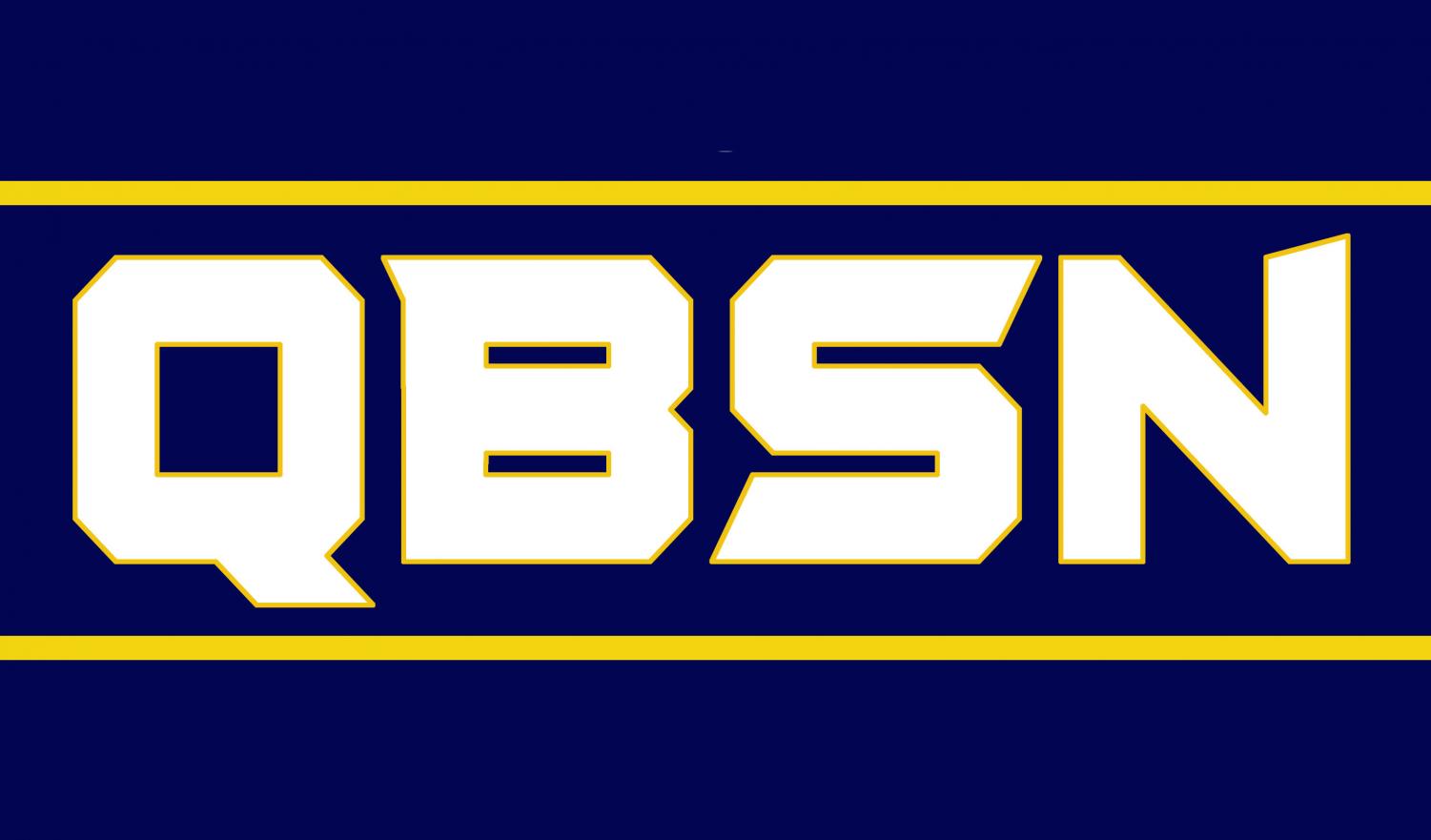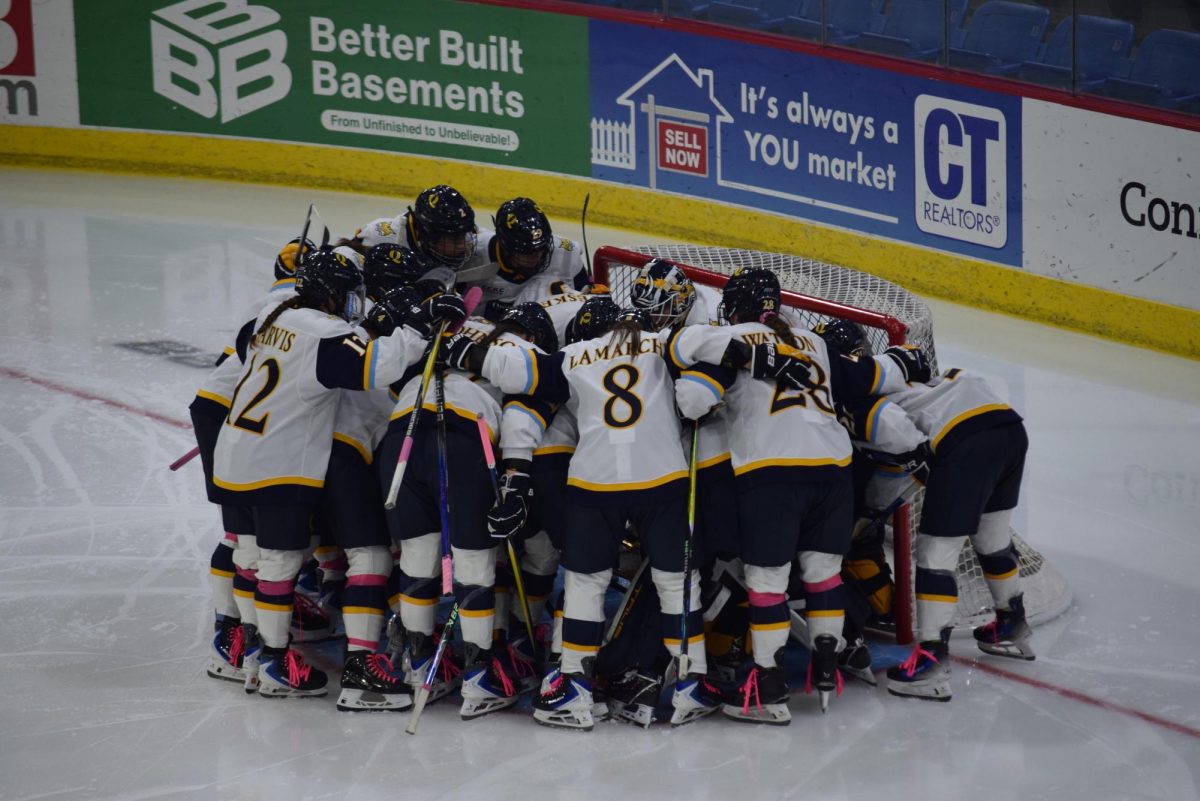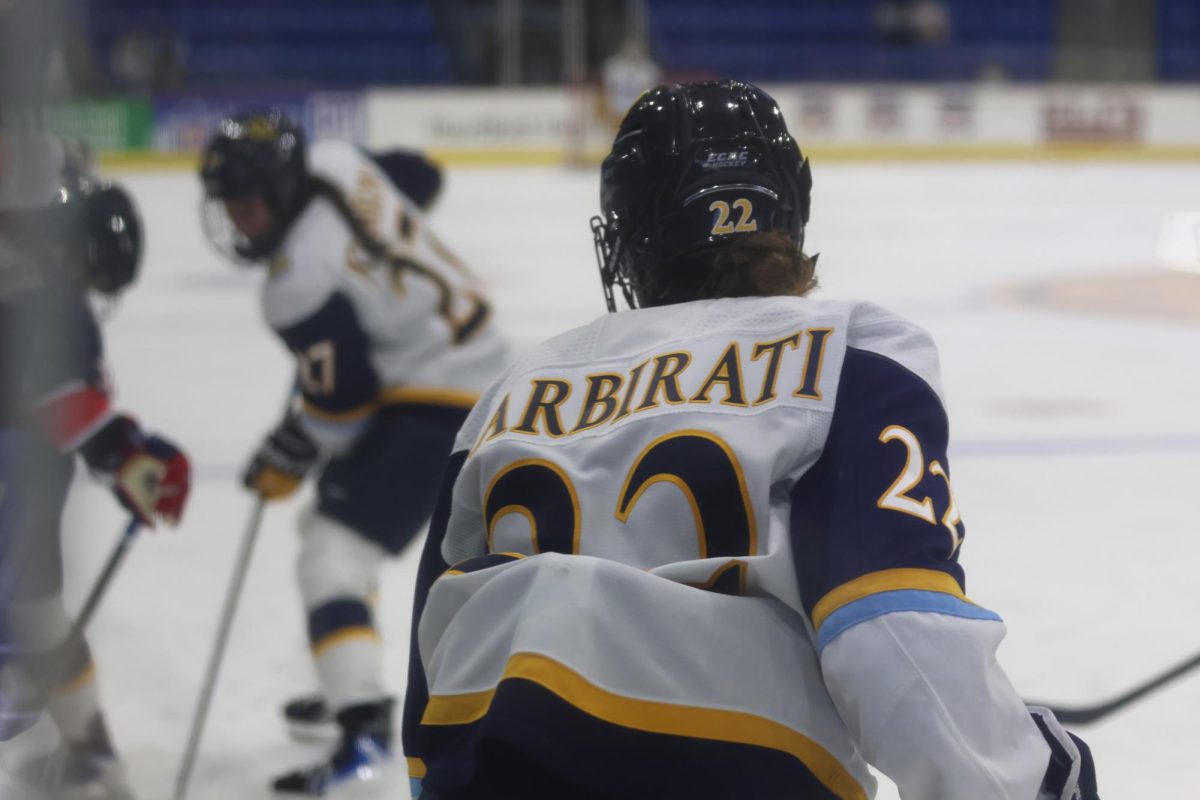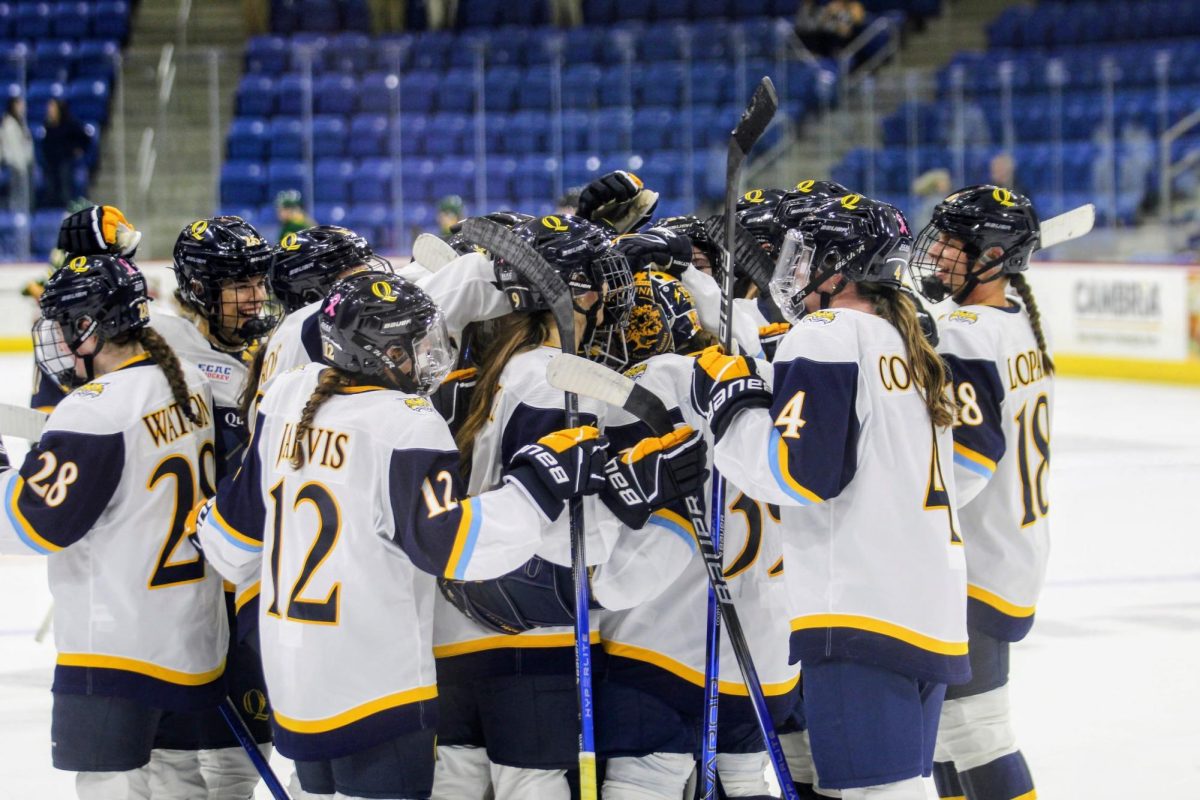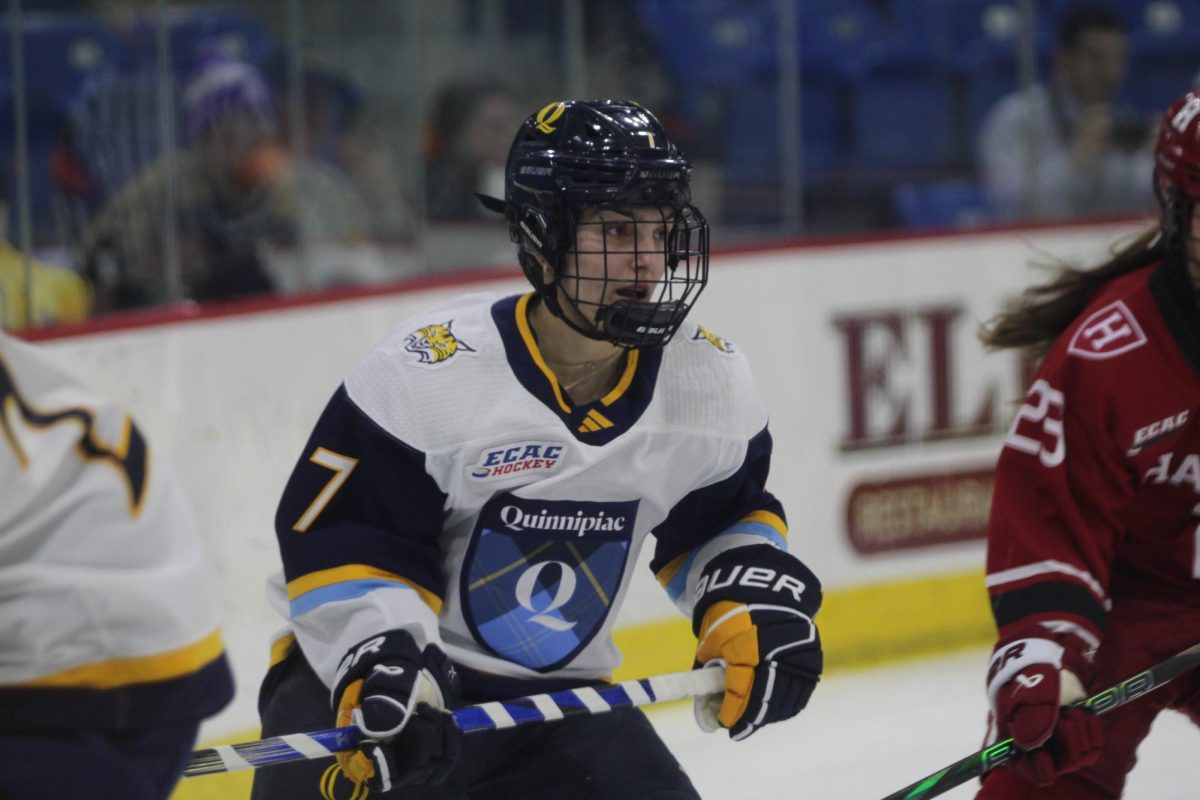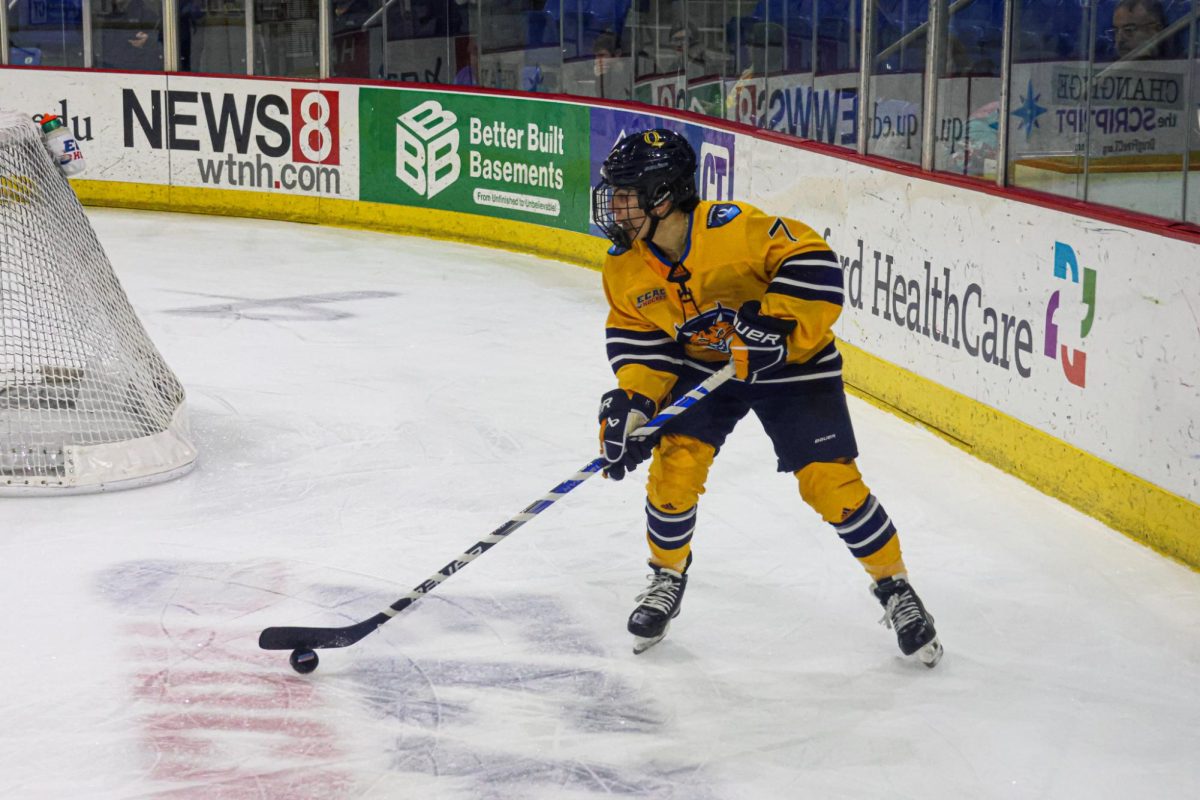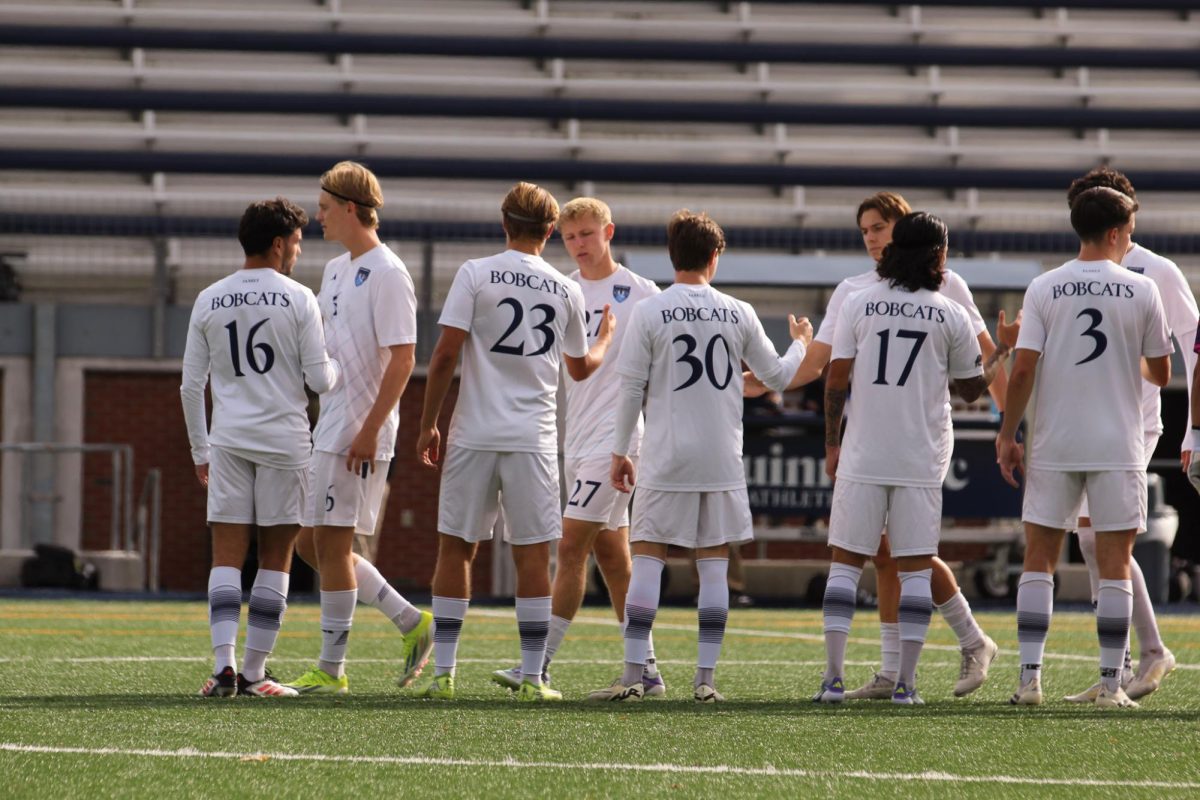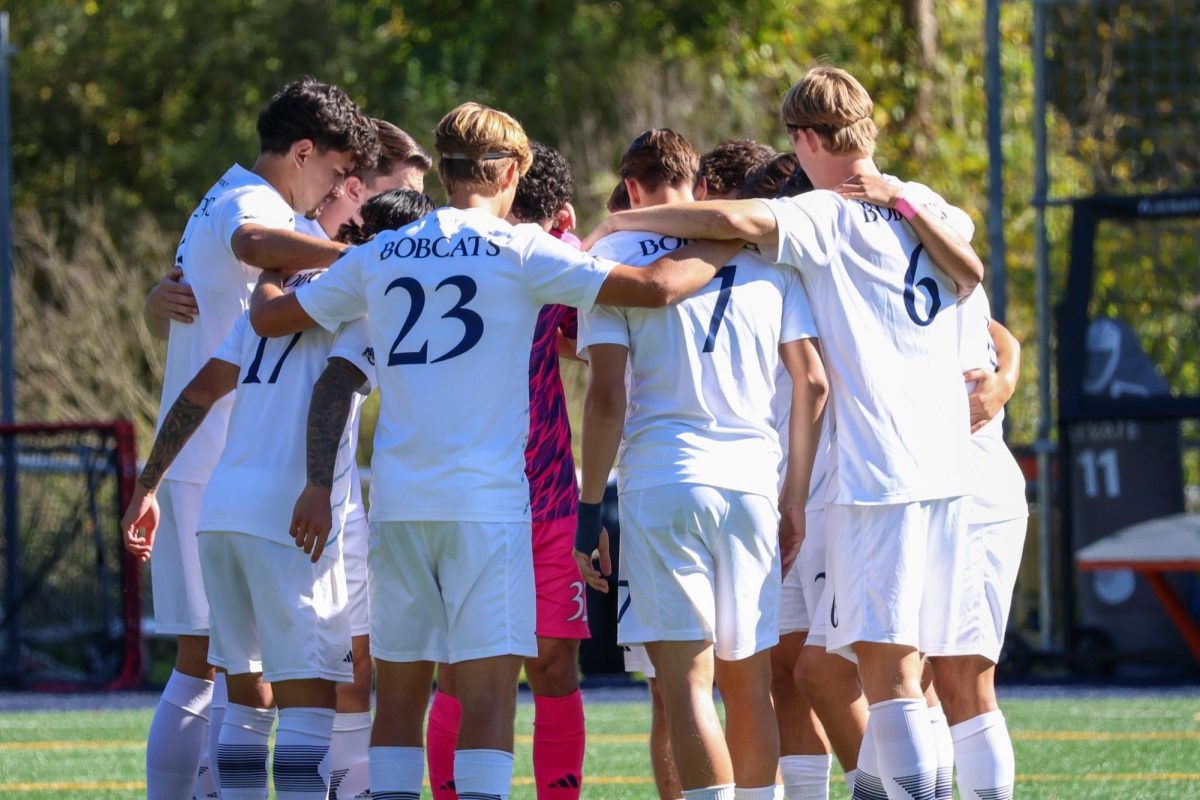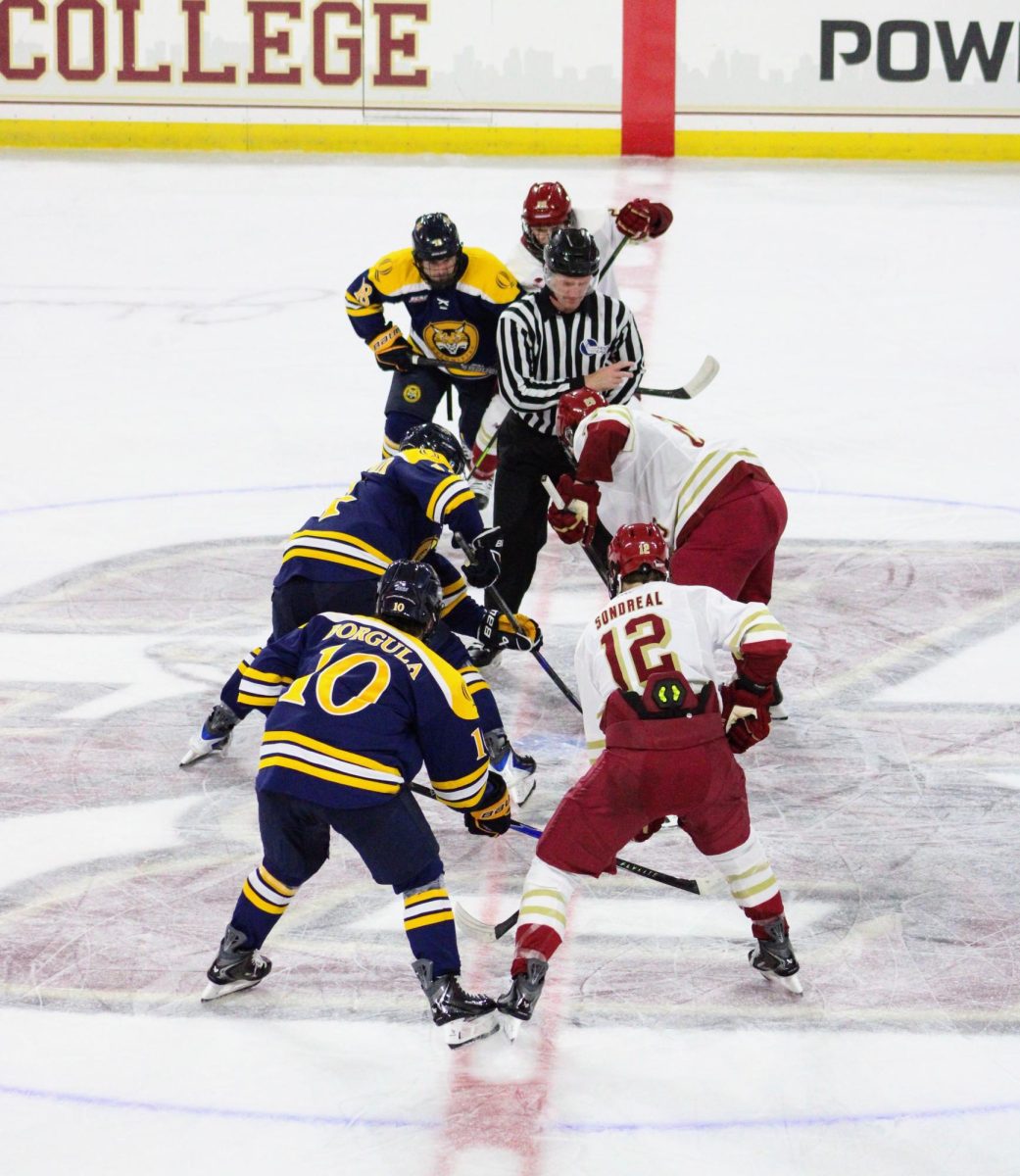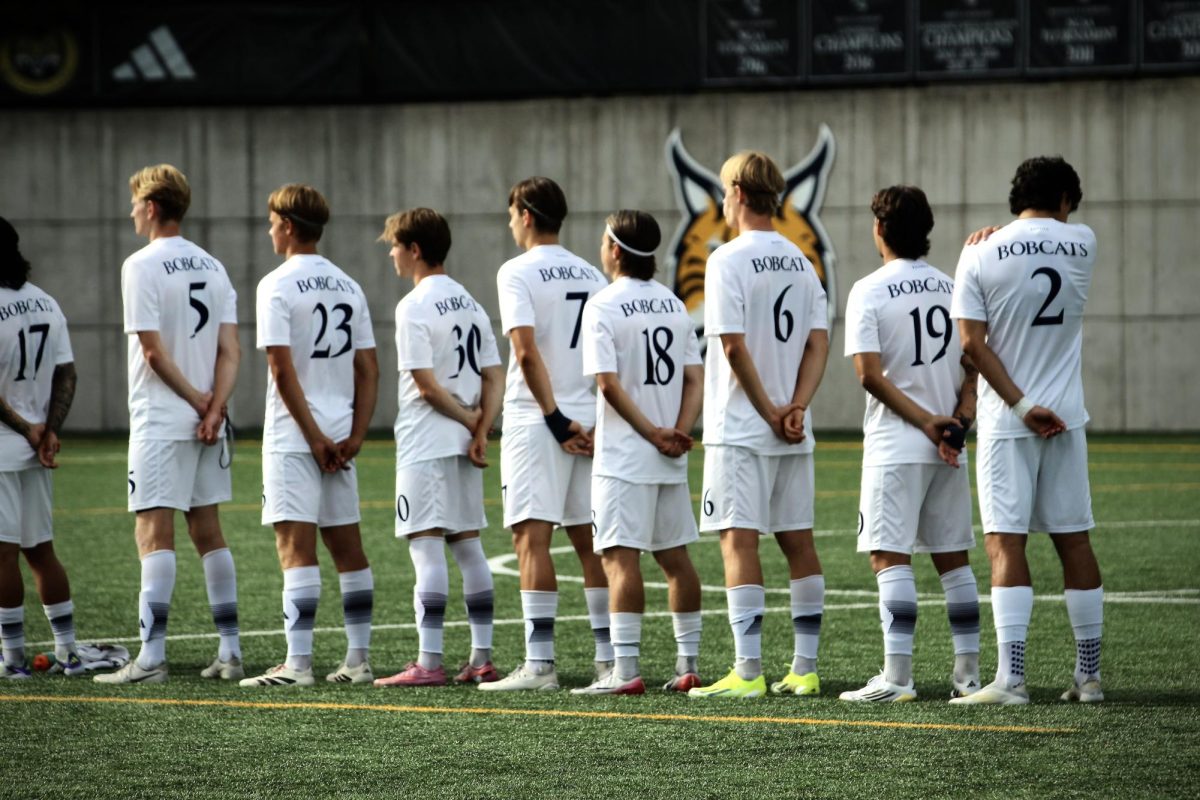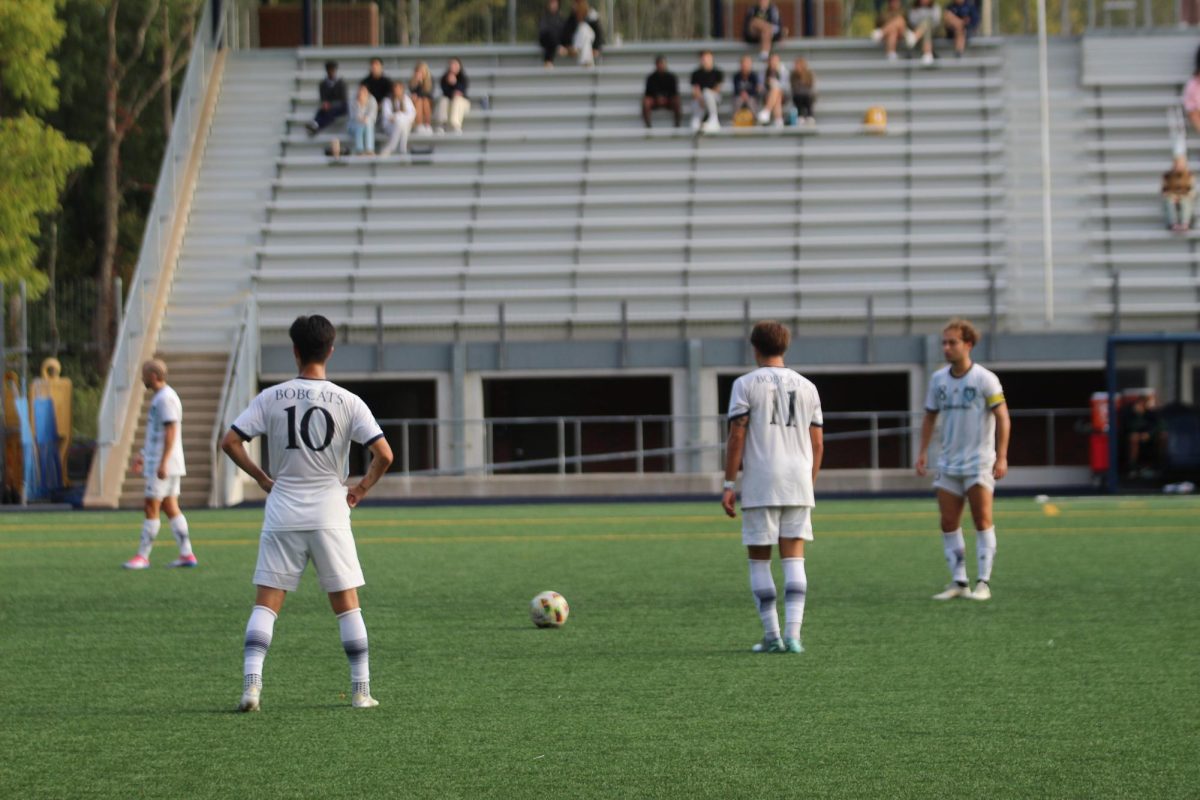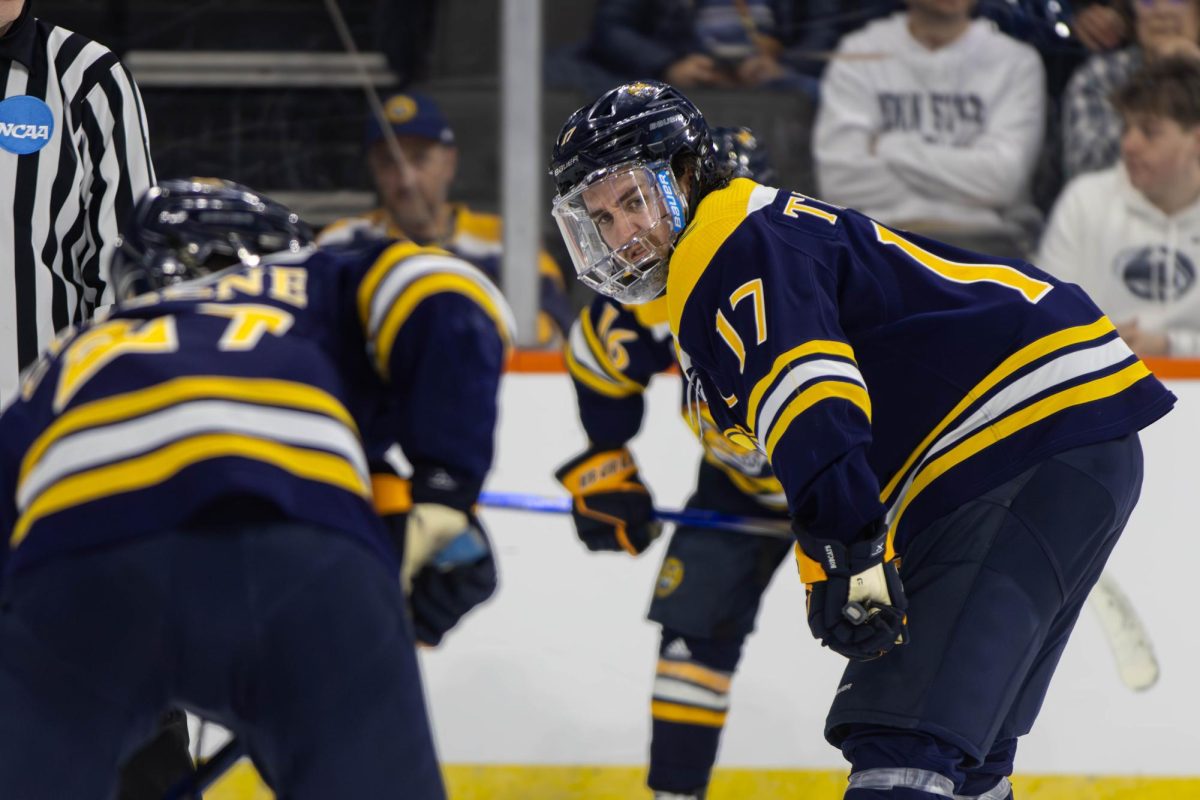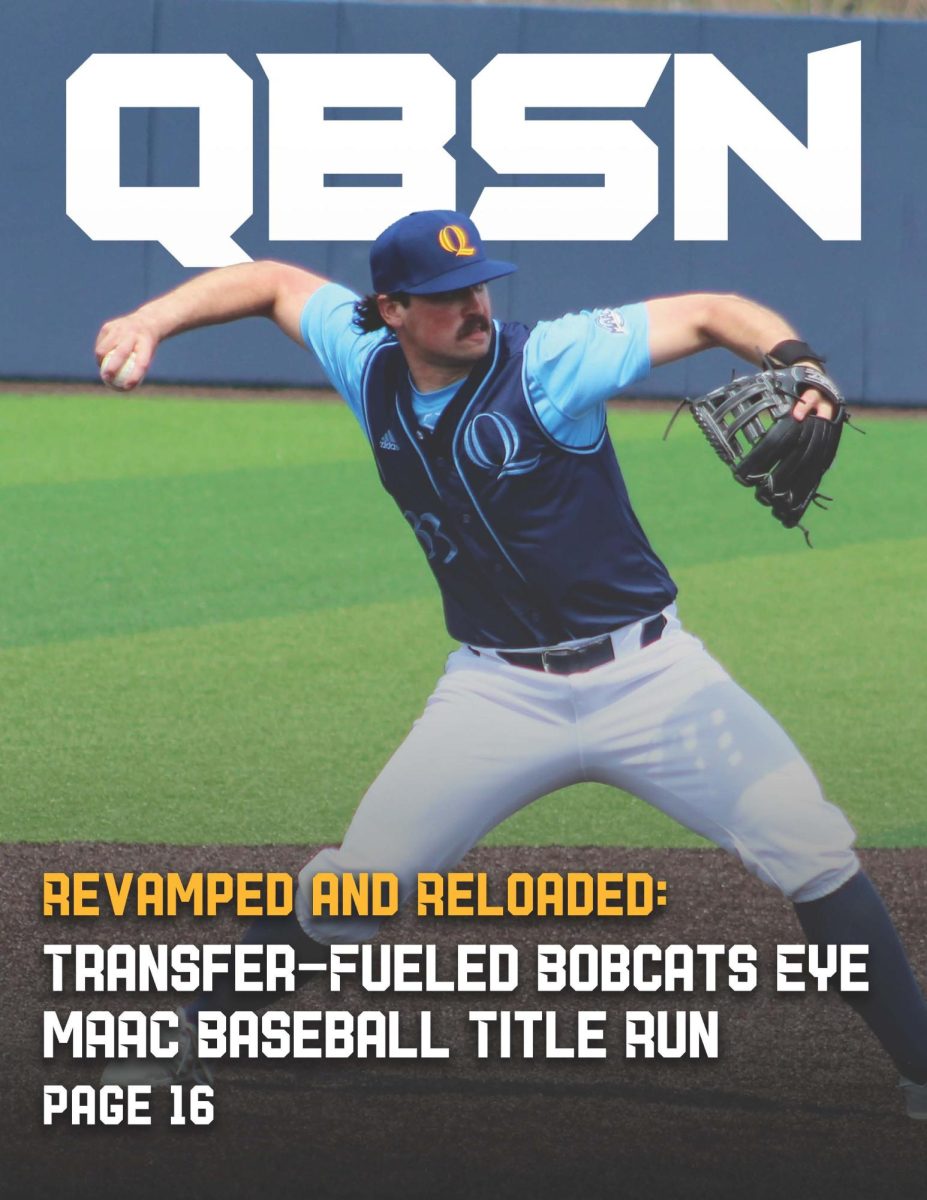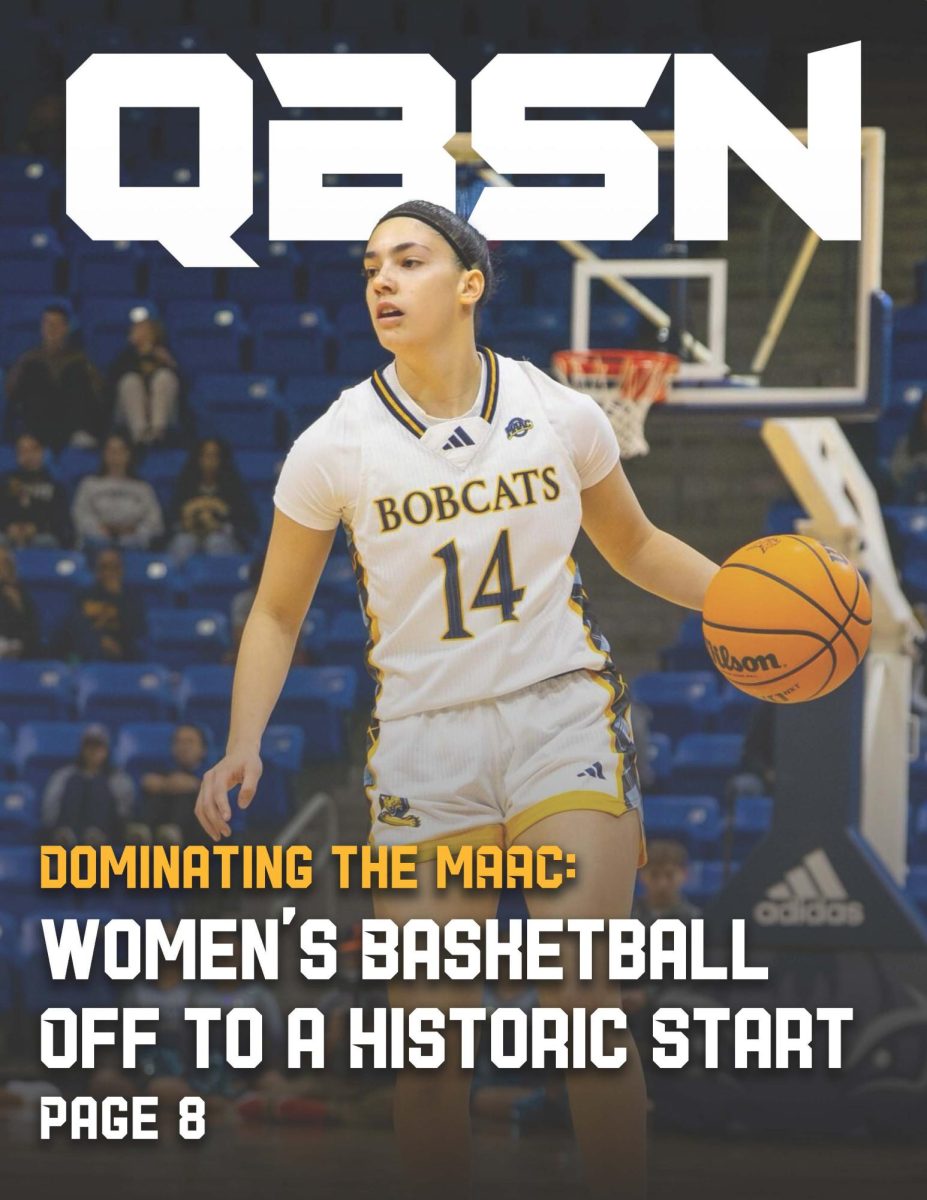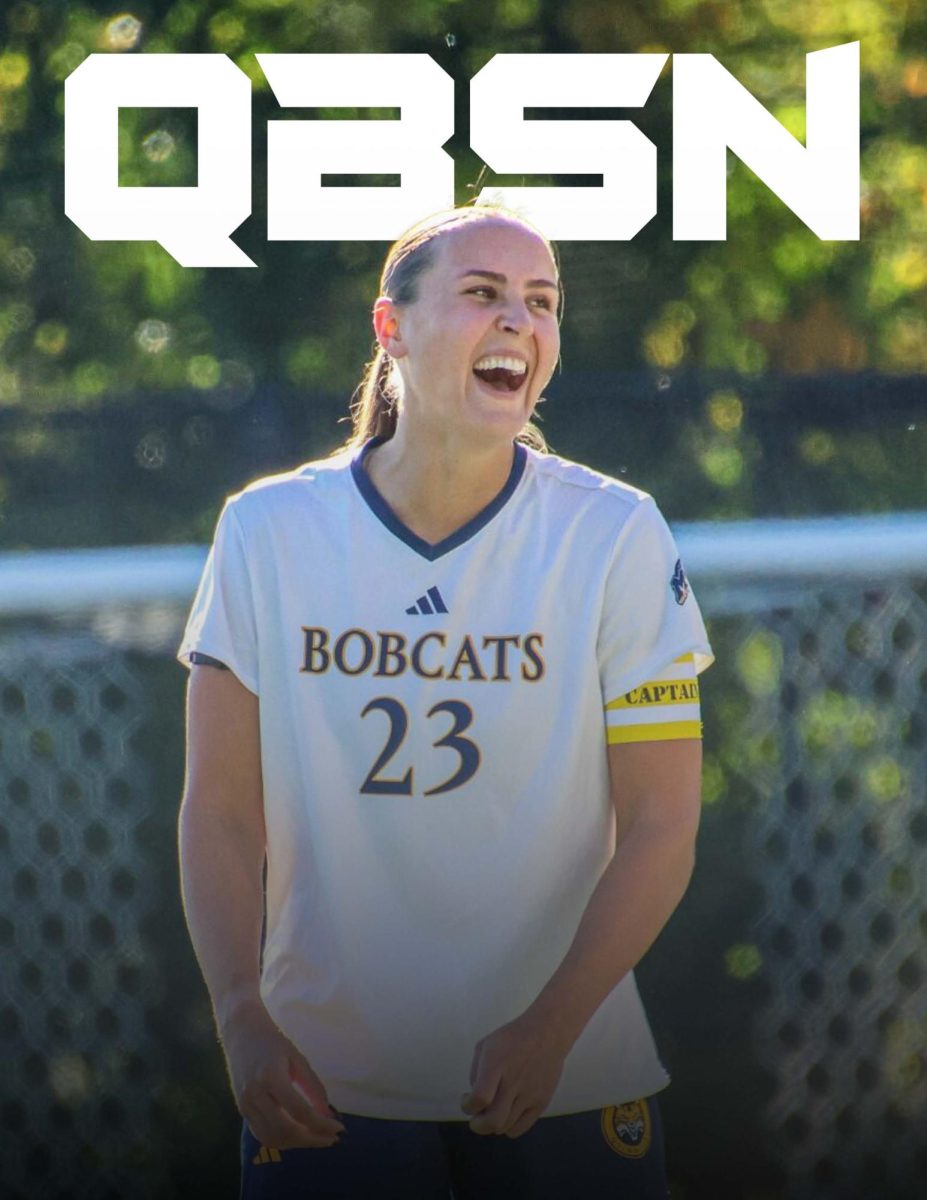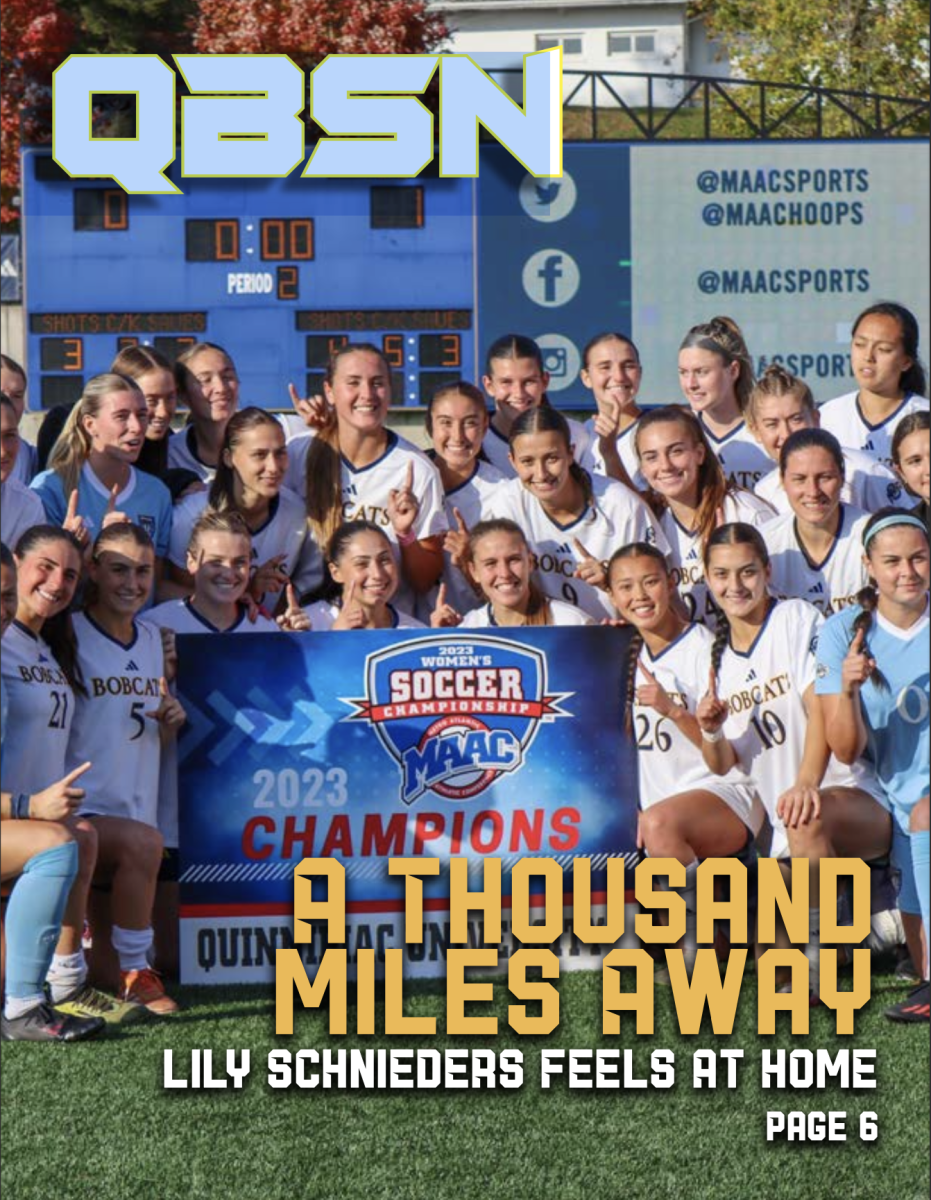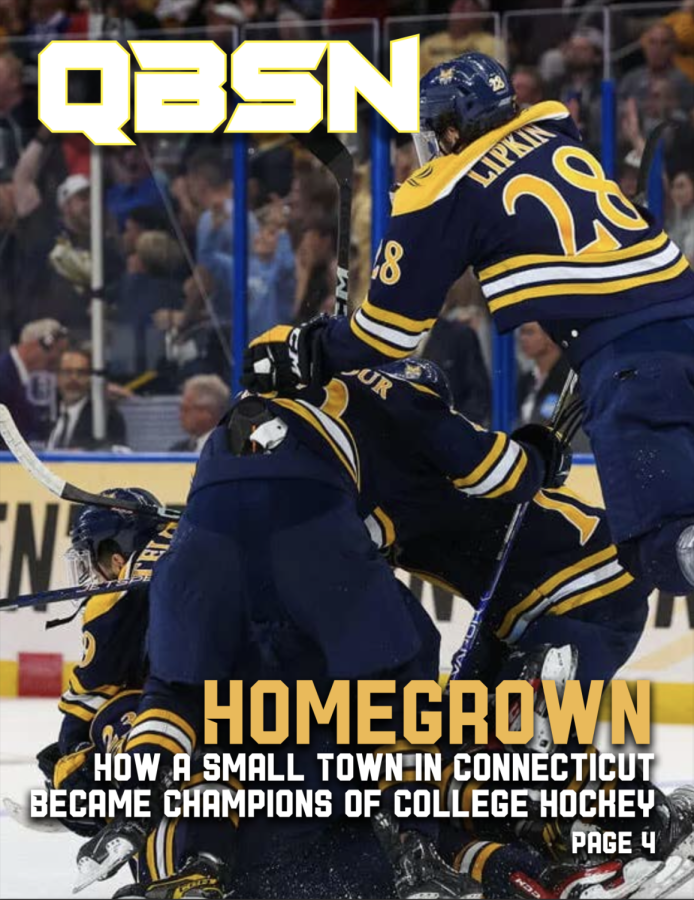
Jack McDonald, 63, is retiring after 20 years as Quinnipiac University’s athletic director. He has elevated Quinnipiac to the Division I level, and was a major part of the university’s growth. Yet McDonald’s legacy also includes a substantial Title IX lawsuit, and the controversial departure of women’s ice hockey head coach Rick Seeley just weeks before the end of McDonald’s tenure.
Seeley won 131 games in his seven-year stint, and took the team to its first NCAA Tournament this past winter. But despite his success, Quinnipiac announced Seeley’s resignation on April 9, following reports that Seeley was under investigation for allegedly grabbing one of his players by the jersey during the team’s NCAA Tournament game at Harvard. A week later, three of his former players from his time coaching at Clarkson University spoke out with allegations of abuse.
McDonald said he had no knowledge of Seeley’s alleged history prior to hiring him in 2008, but also said he was made aware of what he called “minor incidents” after Seeley’s hiring.
“Obviously if we knew what is being alleged, then [the hiring] just wouldn’t have happened,” he said.
But this staffing change in women’s hockey is a small matter for Quinnipiac compared to the multimillion-dollar Title IX lawsuit the university was up against in 2009. When the school tried to drop the women’s volleyball program, players and coaches took the university to court. Lawyers eventually discovered Quinnipiac was not providing equal opportunities for both male and female athletes.
“I’m embarrassed,” McDonald said, shaking his head. “Outside of death and illness, it was the worst experience of my professional career.”
The two sides eventually settled in court. The athletic department agreed to hold on to the volleyball program, but it dropped men’s golf, men’s outdoor track and men’s indoor track.
“Having to tell three teams that they were done was terrible and awful, and one of the student-athletes in the room when I was telling them was my son,” McDonald said. “But now it’s six years later, and that quote about how there is something good in everything—that’s starting to happen.”
Since the Title IX lawsuit was settled in 2013, Quinnipiac has added women’s rugby, women’s golf, and acrobatics and tumbling to its list of athletic programs. McDonald said the school also has plans for a new soccer and field hockey stadium, and a new field house for track and tennis, to comply with the settlement. The university, however, has consistently run into problems with the town of Hamden and has yet to follow through with these plans.
Despite the controversy McDonald has faced, he has remained steadfast in his dedication to the athletics department. He takes photos at nearly every home game, runs the Quinnipiac Athletics social media accounts, and always dons his trademark yellow sweater to show support for his teams.
Some of McDonald’s colleagues have been at Quinnipiac as long as he has, and have seen the Boston College alum’s impact on the school firsthand. Women’s basketball head coach Tricia Fabbri started at Quinnipiac on the same day as McDonald. Field hockey head coach Becca Main started a few months after Fabbri, and former baseball head coach Dan Gooley returned as head coach under McDonald from 2001-14.
Each of those coaches, along with Bill Mecca, the senior associate athletic director, all echoed the same sentiments about McDonald. They said he is a unique boss—the kind of guy you can have a strong relationship with both professionally and personally. And even though he is their boss, they don’t feel they work for him, but instead they work with him.
“Jack’s one of those rare breeds,” Mecca said. “In the sense that he can be demanding without being demeaning.”
Main had a similar impression when she first spoke to McDonald. Twenty years ago when Main found out she would be working with him, she called him on the phone so they could get to know each other. At the end of the conversation, he said he was looking forward to working with her at Quinnipiac.
“I think that kind of sets the tone,” Main said. “Jack lets you work with him, and I think it’s the most wonderful attribute about him.”
Besides being easy to work with, McDonald is a supportive boss. Main said McDonald trusts his coaches to lead their teams to success, and he leaves them enough rope to be creative. It is a quality McDonald has always stuck with, and it came to fruition this past winter.
The support factor was especially important for Fabbri during her 20 years at Quinnipiac. She said there were times when she went to McDonald’s office and told him she did not think she was right for the job, but he was quick to shoot down those self-accusations.
“He really believed in me and my ability to build a winning program the right way,” Fabbri said, smiling. “And now after 20 years, he’s seen three out of his four teams go to the NCAA Tournament this past winter. I can’t think of a better parting gift for us to give Jack than this historic season with 31 wins.”
It is through those qualities, his hands-on approach and his one-of-a-kind leadership style that McDonald has taken Quinnipiac from a Division II college to a Division I university. From 1995 to 2015, he has led the way.
The jump to Division I athletics in 1998 was a big move for Quinnipiac, and there was a lot of work to be done with the staff to get them ready for that next level. McDonald had prior experience at the Division I level when he worked at the University of Denver and Boston College, and Gooley credits him for a smooth transition.
“He taught us how to think like Division I coaches,” Gooley said. “He taught us how to budget like Division I coaches. He taught us how to handle ourselves as Division I coaches. He educated us to the Division I world and for that, we will always be thankful.”
Before Quinnipiac went Division I, McDonald knew he had to re-brand the university. As soon as he arrived, he got started. He changed the school colors from royal blue and white to navy blue and gold. In the words of his colleagues, McDonald put Quinnipiac on the map.
The branding did not stop after he took Quinnipiac to the Northeast Conference, and it continued through Quinnipiac’s elevation into the Metro Atlantic Athletic Conference. McDonald was one of the leading forces in getting the TD Bank Sports Center built atop the York Hill campus.
He never wanted to settle down in his role as athletic director, and continuously worked to make the programs bigger and better. His philosophy toward being a successful athletic director is to always have a plan—one that involves moving forward in one way or another.
“I have a saying that I’m putting on my gravestone,” McDonald said. “Even if you’re on the right track, if you just stand there, you’ll get run over.”
McDonald has made moves to improve the academic standard for student-athletes as well. The cumulative GPA of all student-athletes has risen each year of McDonald’s tenure.
McDonald said he is proud of the student-athletes at Quinnipiac, but regardless of their athletic prowess, he wants to make sure they are properly educated in all aspects for their future careers. Whenever athletes step out of line, he is there to not only discipline them, but also educate them in a way to help them understand the consequences of certain actions.
“I think the worst thing about a mistake is when you don’t fix it,” McDonald said. “Because it’s not just about academics, it’s really helping them develop into young adults.”
McDonald has left a strong impression on Quinnipiac’s athletic community, and that impression is evident at annual events hosted by the athletics department.
Every December for the last two decades, McDonald has hosted an appreciation breakfast for all of the facilities workers, that he calls “Holiday Coffee Hour.” Later that day, he throws a holiday party for the Quinnipiac Athletics community and their families.
Those holiday events are a glimpse into how McDonald has built a family at Quinnipiac. Past experiences have taught him how important a family can be, and he wanted to bring those values to his work at the university.
“A tragedy in your life sometimes turns out to be a good experience,” McDonald said. “When I was a freshman in high school, I was the oldest of nine children, and my dad died. So all of a sudden I went from a 13-year-old kid to a stepdad of eight brothers and sisters. So family is beyond important to me, and we probably spend more time at work than we do at home, so I wanted to build that family atmosphere.”
McDonald’s colleagues are well-aware of the family they are a part of.
“It’s very rare nowadays to have someone that the department reports to, that regardless of your title he treats everybody like they’re family,” Mecca said.
The closeness of everyone within Quinnipiac Athletics is a testament to what McDonald hoped to accomplish during his time at the university. He said he feels he hung it all out on the line, but will miss the daily grind of working directly with the student-athletes at Quinnipiac. Yet he has signed on as associate vice president and director of athletics for the University of New England, so his work with student-athletes will continue.
“That’s where you take the job and really try to mold yourself into the community, and not be this dictator kind of person,” McDonald said, prior to accepting the job. “I really want to be a part of it all. And I’m going to miss that.”


